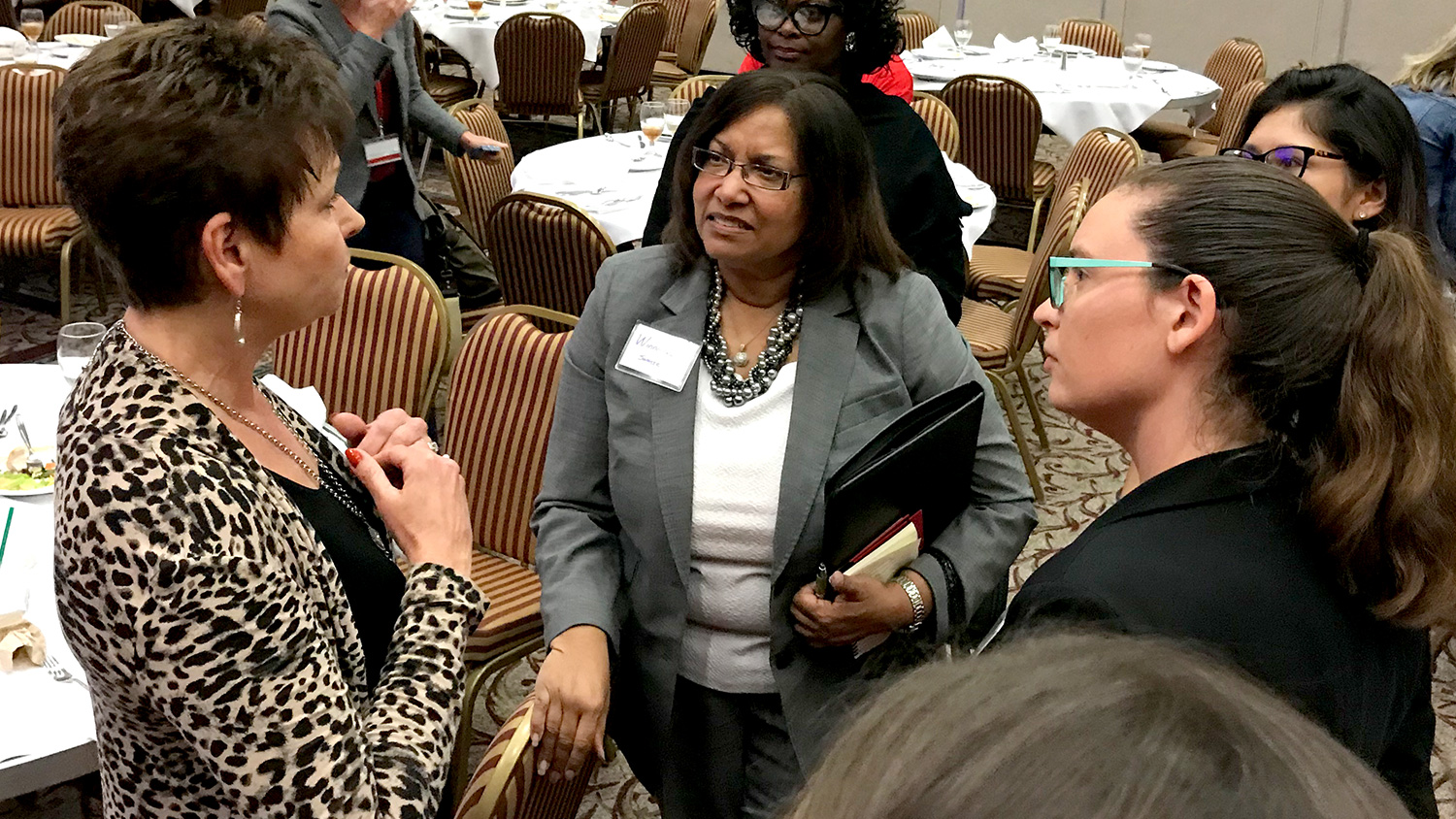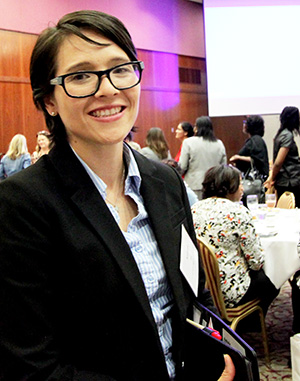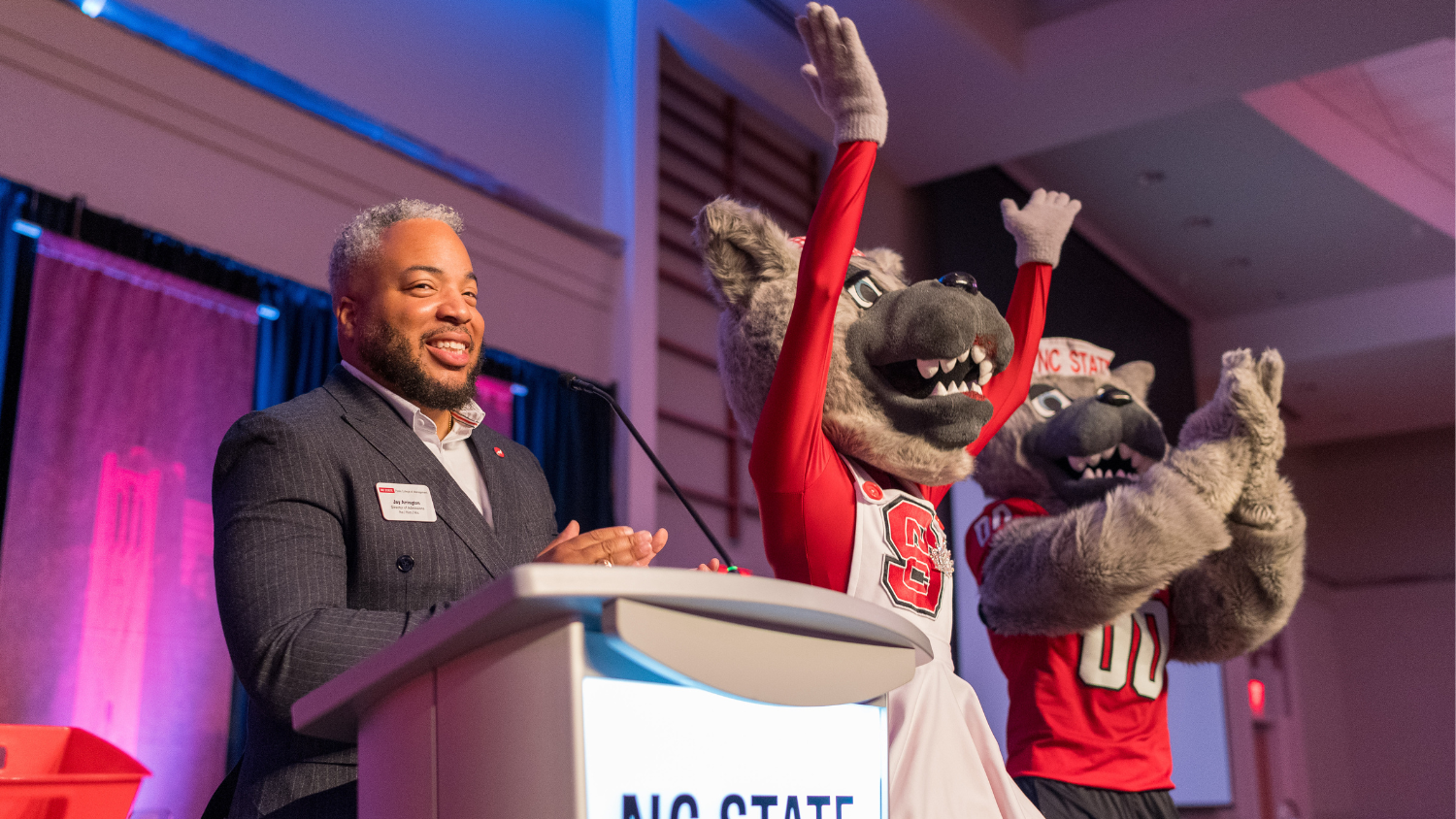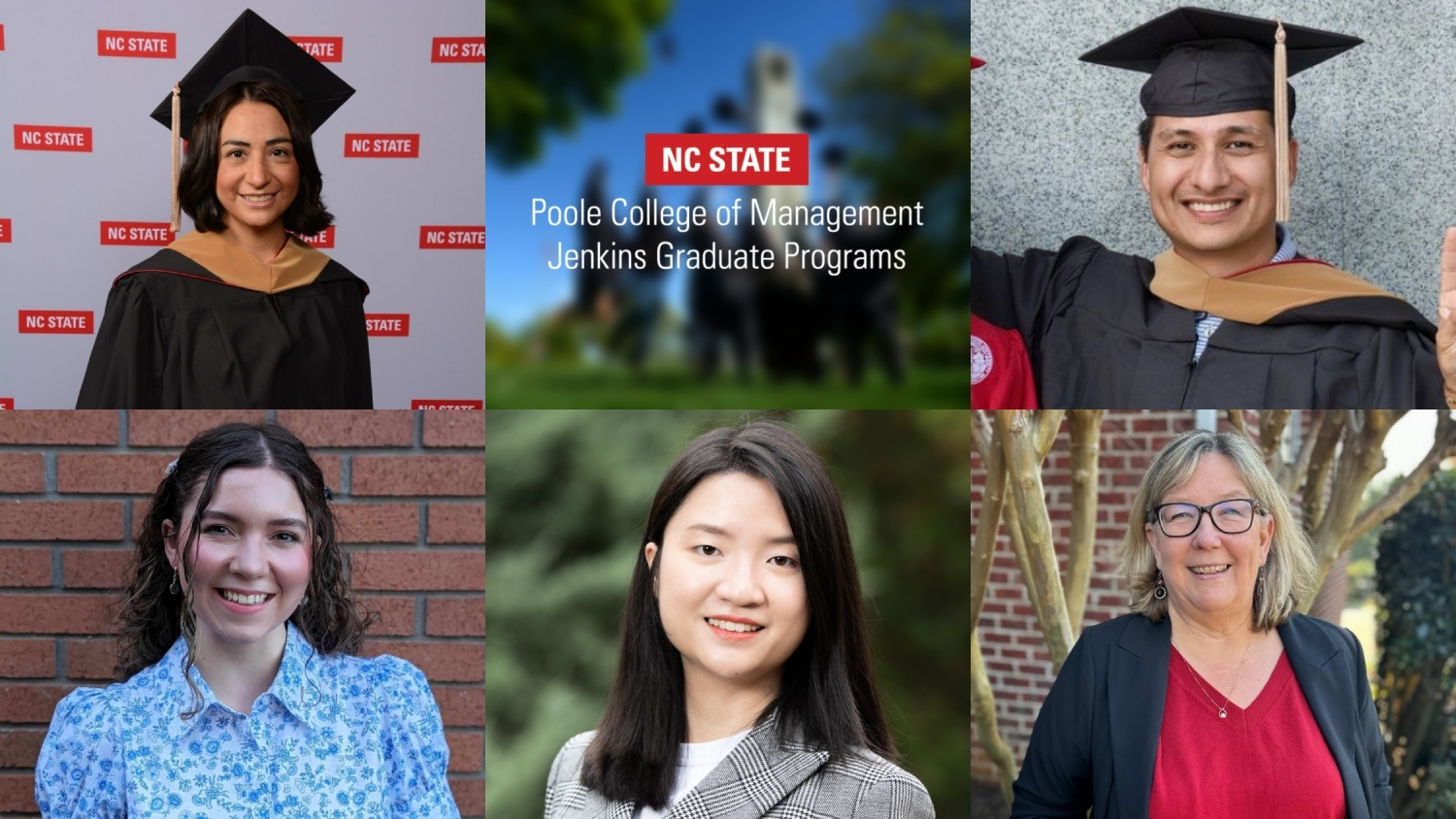Gina Poole Offers Top 10 (Plus One) Tips at Innovative Women’s Conference

Gina Poole, chief marketing officer, game developers at Amazon, was keynote speaker at the Innovative Women’s Conference held October 20, at the NC State McKimmon Center. This is the third year that the conference has been hosted by women students in the Jenkins MBA program at the NC State Poole College of Management. Poole received her bachelor of arts in business management degree from NC State in 1981.
More than 100 guests – with a nearly even mix of professionals and students – participated in the conference. They selected from a series of panel discussions led by 16 academic and professional women on topics that included women in entrepreneurship, information technology, marketing, and supply chain, as well as negotiations, gender equality and managing finances. Shay Mustafa, vice president of consumer marketing at R.J. Reynolds, spoke at the pre-conference networking session held the evening prior at HQ Raleigh.

The mix of professions and insights represented by the speakers was well received by participants, who themselves came from a variety of backgrounds. Nathalia Ortiz, a graduate student in chemistry at NC State’s College of Sciences, said, “This is just what I wanted.” She cited the messages of empowerment, being innovative and growing both personally and professionally that she heard from the speakers.
An NC State Poole College alumna (no relation to the college’s benefactor), Poole received her bachelor’s degree in business management with a minor in economics, and then completed a certificate in computer science in the NC State College of Engineering. She also serves on Poole College’s Board of Advisors.
Prior to her IWC keynote address, Poole participated in a question/answer session by email with Poole College communications, focusing on her career path and current role with Amazon. Her responses are posted below, following a summary of her “Top Ten plus One” list of tips for women in business that she presented in her luncheon keynote address.
GINA POOLE’S TOP TEN (PLUS ONE) LIST
#11: Her Motto: It never hurts to ask, but how you ask is important.
#10: Make yourself heard. Get to a meeting a minute early, take a seat at the head of the table so you can be seen and see others.
#9: Earn trust and be humble. Be polite. Listen.
#8: Hire people who are smarter than you. There are lots of different types of smart, including enthusiasm, wanting to learn.
#7: Be the spark that sparks others.
#6: Embrace random events.
#5: You can’t do it all yourself.
#4: Learn and be curious.
#3: Believe in yourself.
#2: Leave it on the field. Don’t hold grudges; don’t read so much into things.
#1. No regrets.
Poole’s responses to a pre-conference question/answer session provide insight into how she came up with her “Top 10 Plus One” tips and the evolution of her career.
PRE-CONFERENCE Q & A WITH GINA POOLE
Q: How did you get interested in computer science?
A: It was a circuitous route. As an undergrad, I was originally interested in going into law, but after an internship in that field, decided against it. My father was starting a company in Florida, so I went down to help him, and decided I didn’t want to do that either. I was talking with my brother, who got into computer science, and I was intrigued. I thought that adding the computer science to my business degree would be valuable. A combination of business, technical and people skills is important in business today; I happened to cobble that together years ago.
Q: What intrigued you about technology?
A: How it was really changing everything: how people interact, how businesses move forward strategically, and the mix. If you think about business, strategy, marketing, technology all play a role in it, and I thought that background would be valuable. I always enjoy being part of the next wave, and in computer science, a lot of exciting things are happening.
Q: What was your first job out of college?
A: With IBM, but one of the Top 10 things I mention (when talking with students), is that you never know where the next opportunity comes from. I went to Florida (for the interview), and it was exciting: personal computers, a lot of young people – very different than what I had imagined. I started as a programmer, thinking it would work out for a year, but gravitated to leadership opportunities with my (academic) business connection, leading a technology department: designers, developers, testing, then moved to marketing and sales. I really enjoyed that. I then moved to emerging technology units, partnerships with other organizations, and then there was a very good job of the marketing of these technologies. We launched a website to do that. I got involved and loved the digital. I then kept gravitating back to that.
I decided that IBM needed a vibrant developer community, so we did that internally, shipped it around and then started developer outreach activities. We organized 500 events around the world.
Q: How and when did you get involved in game development?
A: Game developers vary. They can be a company, a team developing a game within a company, or individuals. It’s comparable to developing a movie. There’s the story – the narrative of the game, the visuals, audio – and the back end, how you make sure it’s up and running. It needs to have the same reliability whether you’re playing in Australia or Japan, with no lag time.
Access has also changed. In the past, you would buy a game, put a CD in your computer; now, you play for free and the company makes money through the in-game economy – the cool things that you might want to buy related to the game environment and action.
And it’s as much fun to watch as it is to play. There are millions of people who enjoy watching other people play. Game players can broadcast themselves playing via Twitch – a social platform and community for the video game culture community – and people watch to learn about a game, how to play. This is the eSports community. It’s amazing where in the world these people come from. Just as with the NBA, NFL, there are stadiums full of people watching two people play each other in a digital game, with huge potential for revenue through prizes.
The games are fun, but you can also use the same concept of games for learning.
Q: What about marketing to the game developers?
A: In marketing to the developers, you focus on capabilities to help them create the games, to build faster, to attract more players and to monetize the game.
Q: How do you keep up in this dynamic environment?
A: A lot of reading. I start my day with what’s going on in the news. The big game organizations have some of the top people from the industry, so everyone is always sharing hot new things with everyone else.
Q: What’s your role as CMO?
A: As CMO, you’re the advocate for the customer, so it’s really critical that you understand their pain points, needs, and how you can help them to be more successful. You do this through events, digital and social opportunities, facilitating developer-to-developer communications, and looking at how marketing can make it easier for them to interact through webinars and blogs, for example.
Q: Where would someone who wants to work in this space get started?
A: You need strong marketing skills – digital or broad-based. Gaming experience is preferred, but those can be learned. That includes learning about the roles of personas in the games. Also, you need to be able to work across multiple tactics.
- Categories:


